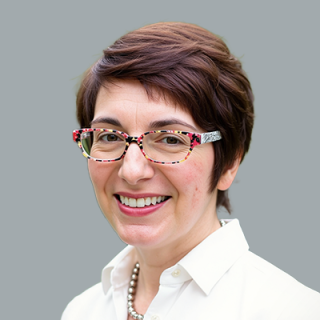Blog
SPAC Perspective: What Do We Do About Cayman?
Cayman continues to be a hot topic among SPACs. It comes up in almost every conversation I have about SPACs and de-SPACs. My clients are asking: Should they incorporate in the Cayman Islands and then remain there after their business combination?
To help us break down this hot topic, I spoke with Natalie Bell, a partner in Ogier's Corporate team in the Cayman Islands. She specializes in equity capital markets transactions, including SPACs and initial public offerings (IPOs). Here are the highlights of our conversation, edited for clarity. You can also watch the complete discussion below.
Why Are SPACs Incorporating in the Cayman Islands?
Yelena Dunaevsky: We've covered the concerns for SPACs in Delaware in previous posts and webcasts. Most of the newly incorporating SPACs moved out of Delaware—primarily into the Cayman Islands—over the last year. From what I'm seeing with my clients and hearing from other sources, that trend is not going to change.
The first reason is the 1% excise tax that is applicable to SPAC redemptions, and the second is the continuing negative treatment of SPACs by Delaware courts. SPAC-related lawsuit settlements reached their highest numbers in 2024. Many of these suits were filed in Delaware.
Of further concern to modern SPAC teams are the increasing costs for SPAC sponsors. Not only have the current market conditions pushed those costs higher, SPAC sponsors have been named as defendants in approximately 86% of all SPAC-related merger & acquisition lawsuits in Delaware Chancery Court and in nearly 13% of all SPAC-related securities class actions, resulting in additional litigation costs. It’s no wonder that SPAC sponsors are not willing to take on those additional risks and costs and are looking to Cayman as a more logical choice.
Natalie Bell: To put things in perspective, using statistics from Pitchbook, there are 145 SPACs currently listed on NASDAQ and the New York Stock Exchange (NYSE). Out of those, 112 are Cayman Islands SPACs. That's a huge majority.
Natalie Bell: Of the 63 SPACs listed last year, only one was in Delaware, and all the rest were in Cayman. So, the market has just completely moved.
Natalie Bell: You mentioned the main reasons for why they moved, but it is also important to note that Cayman corporate law is intended to be simple and flexible. It is completely tax-neutral. There is no additional layer of taxation, and Cayman has a sophisticated court system with a strong body of case law to support it, which makes it an attractive option.
Originally, when we started working on SPACs back in 2021, most teams formed in Cayman if they thought that they were going to be looking for targets outside of the US. On the de-SPAC side, they would try and take advantage of foreign private issuer (FPI) status, which means that issuers don't have to comply with all the same requirements as domestic issuers and they get to use the home country option, which means that they have to comply with corporate governance rules of the home country. So in Cayman that would be pretty light, and there's no additional regulatory overlay in Cayman that they would then have to comply with.
Yelena Dunaevsky: And so why Cayman, for example, rather than Delaware? And why not somewhere else?
Natalie Bell: I think part of that is the familiarity of NASDAQ and the NYSE with Cayman. It has been market practice for foreign companies to put Cayman on top of their structures when they're listing. So NASDAQ and the NYSE are both very familiar with the Cayman exempted company structure. And that helps minimize the hurdles when you're listing. We also have a sophisticated court system, there's a strong body of case law there, not to mention the strength of the Cayman law firm corporate teams who are really able to deal with this kind of work and meet the demands of fast-moving transactions and quickly resolve corporate disputes. So I think people feel very confident with Cayman. Onshore law firms just know that there are teams here who can service the work and provide the level of service that their clients are used to receiving.
Yelena Dunaevsky: I'm getting questions about whether a SPAC that has already found a target should consider redomiciling back into the US or whether it should stay in Cayman. Would you walk us through that reasoning?
Natalie Bell: Many of the reasons for these decisions are not actually related to Cayman. They are based on decisions in the target's country or on the tax rules of the other US jurisdictions. I did a little analysis of the last 18 business combinations that we have done and in nearly a third of those, the target was in the US, and the jurisdiction of the publicly traded company—the ultimate listed entity following the de-SPAC—followed the jurisdiction of the target, generally following the state of the target as well. But if the target was not in the US, then in every situation, there was a Cayman publicly traded company that was ultimately listed. So, at the moment teams are definitely still following those jurisdictional lines.
Yelena Dunaevsky: Another set of questions usually revolves around how Cayman compares to Delaware as far as ease of corporate operations, corporate governance requirements, rules around share classes, voting, and the like are concerned.
Natalie Bell: Cayman is a very facilitative jurisdiction, and the corporate law is intentionally very flexible.
Natalie Bell: We have, along the way, had some issues around notices of meetings, for example, that have come up repeatedly. But law firms have adjusted to iron out those issues, and the articles are now being drafted to avoid those issues. And that's one of the advantages of working with a firm that has been doing these for a long time and has seen a lot, is that those sorts of practice points have been taken into consideration and practice has moved on. But generally, in terms of things like appointment of directors, all of those things are incredibly flexible in Cayman and can be written in the articles however you want them to be and are quite straightforward. And, so there's huge flexibility which, I think, is very attractive.
Director and Officer Risk in Cayman
Yelena Dunaevsky: In January of 2025, there were two very large securities class action settlements in the SPAC world. One was an $80 million settlement (Grab Holdings Ltd.), and another was a $126.3 million settlement (Alta Mesa). Those are the biggest numbers I've seen so far in the SPAC world. There's more to come, so people want to know if they can limit some of the court-related risk in Delaware or the federal US courts by going to Cayman.
Natalie Bell: I think there's sometimes a slight misconception that the same sort of fiduciary duty issues don't exist in Cayman. And we sometimes get questions on that sort of thing, like, do we have to include this same language if it's a Cayman SPAC compared to if it's a Delaware SPAC? And often the answer is yes, because very similar fiduciary duties actually still exist. There are some differences. But we haven't seen that wave of litigation like there has been in Delaware.
One reason is the concept in Cayman that the loser pays the costs of the litigation. That is not the case in Delaware and as a result, you see a lot of copycat, speculative cases.
Natalie Bell: In the Cayman Islands if you were going to bring a claim, you would have to know that if you didn't succeed, you were at risk of having to pay not only your own costs, but also the costs of the company.
Natalie Bell: I think that does avoid that deluge of speculative claims, where people think “it's worth a try because we might get something out of this.” It ends up being a big deterrent.
Another reason is that the Cayman courts really believe in the sanctity of the contract, and this is just a perception that I have (I’m not sure how accurate it is, not being a Delaware lawyer), but we do see in US cases more appetite on the part of the judges to take what they consider to be an equitable decision. Whereas in Cayman, the courts are willing to rule on something that is not necessarily equitable, but it's what the parties agreed to in the contract, and the sanctity of the contractual relationship is really an important principle in Cayman law that we see being upheld.
My litigation colleagues see that as another reason why these claims might not stick as much in the Cayman courts as they have done in Delaware. So, it remains to be seen really, but certainly, we just haven't seen the same deluge of lawsuits as in Delaware, and at the moment, it definitely does seem that litigation is slightly less likely with SPACs in the Cayman Islands.
What Does the Future Hold for SPACs?
Natalie Bell: We're bullish. As a team, we are betting on this being a continued wave for Cayman. And as far as SPACs, we expect an uptick in SPAC activity. The message we're getting from the market is that there is pent-up demand for corporate transactions and that there's capital. We're very much hoping to ride an upward wave, but it's very difficult to predict.
Yelena Dunaevsky: It's similar here in the US, although there has been a little bit of a slowdown due to some of the news and market conditions so far this year. It's a careful walk towards better deals and more volume than we saw in 2024 and 2023.
From the insurance risk perspective, carriers are more aware of exactly where the risk is and how much the pricing needs to be, and generally people are optimistic.
We're going to see more SPACs and more de-SPAC transactions. And we're going to enjoy better terms and pricing from the insurance side of things for the foreseeable future.
Author
Table of Contents









